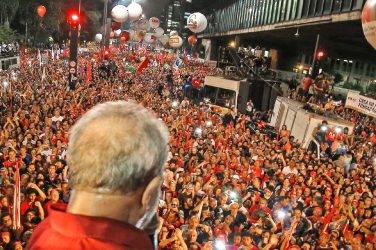Brazil’s lower house of Congress voted Tuesday to give cities greater power to regulate ride-hailing app Uber and other transportation apps, paving the way for local governments to charge taxes, require insurance and pension benefits for drivers.
In a symbolic vote, a majority of lawmakers approved the main text of the bill and voted on specific items that still need to be cleared in the Senate. One of the approved amendments would require cities to authorize Uber services.
The bill will as written now transform Uber cars, into taxis, with the same regulations. Uber drivers would have to get permission from city authorities to operate.
With the bill approved on the House, the legislation goes now to the Senate. Taxi drivers should put a lot of pressure on the legislator to make the bill into law.
The amendment that makes ride-hailing services a public interest activity, could interrupt Uber services in cities that lack regulation, Daniel Coelho, one of the lawmakers in charge of drafting the legislation, told reporters after the vote.
Uber said in a statement that the bill proposes “a backward law that does not seek to regulate Uber, but to turn it into a taxi (operator).”
The company added it expects the debate to continue in the Senate to “ensure that the voice of millions of people in Brazil who wish to have their right of choice is heard.”
Although the overall impact is not immediately clear, the legislation could increase the cost of the ride-hailing app in Latin America’s biggest consumer market.
Brazilian taxi unions and many politicians have accused Uber of unfair competition, triggering protests by taxi drivers in some cities and even attacks against Uber drivers.
Adding to Uber’s woes in Brazil, Spanish rival Cabify earlier Tuesday announced an investment of US$ 200 million to bolster its participation in South America’s largest country.
Taxi drivers in other Latin American countries, such as Costa Rica and Paraguay, have also protested against Uber saying that the company threatened their jobs and livelihood.
teleSUR













